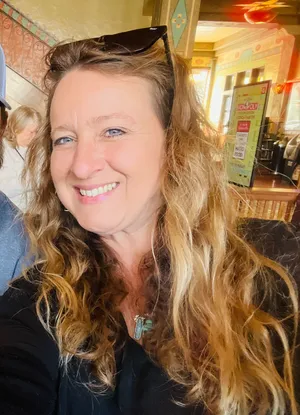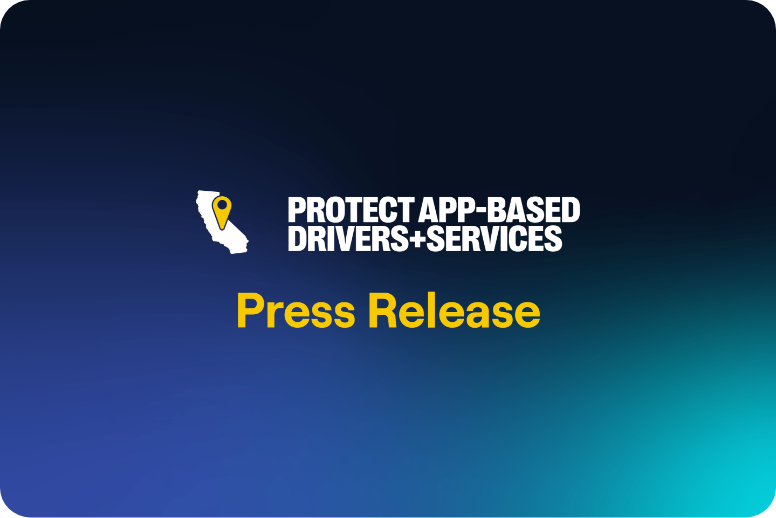By Stephanie Whitfield
It may sound dramatic to say that app-based driving saved my life, but without the income and connection to my community that it provides, it’s safe to say I would be in a very different place than I am today.
I loved my career as a teacher and enjoyed nothing more than working with kids and their families. The decade-plus I spent in education were some of the most rewarding times of my life.
But unfortunately, in 2017, I needed to have back surgery. The recovery from major surgery was both intense and painful, and required significant amounts of physical therapy. The ongoing discomfort and subsequent medical appointments is what ultimately led me to resign from my teaching career, a tough choice, but one I had to make to take care of myself.
Unsure of how I would be able to pay my bills and medical expenses, a friend suggested I look into app-based driving as a way to make supplemental income. I was pleasantly surprised to learn that I could schedule my own hours and make a living wage driving part-time. I was able to work when I could, and return home with enough energy to still do my physical therapy and rest while my body recovered.
My schedule also allowed me to pursue a passion project of mine: connecting creative artists in nature. Ultimately that business was so successful I sold it – something I would have never had the opportunity to do as a teacher or without the flexibility of being an independent contractor as an app-based driver.
Prop 22, which passed in 2020 with the overwhelming support of California voters, protects the ability of app-based rideshare and food delivery drivers like me to work as independent contractors. Unfortunately, opponents of the law are challenging my right to be an independent contractor in the California Supreme Court.
Driving for Lyft and now Instacart is more than just work to me – it’s how I connect to people and serve the community. I’ve helped those stuck at home during the pandemic, as well as caretakers and busy parents who rely on delivery services for their families. These types of connections are something I prioritize as I consider the kind of work I choose to do.
If the flexible model of app-based driving goes away, it will be devastating for those of us in the Coachella Valley. So many of us rely on the flexibility and control this model provides us, especially when there are busy events like Coachella, Stagecoach or spring breakers in town. March and April are traditionally busy months that allow me the opportunity to extend hours and then take some time off later in the year.
What’s more, part-time driving has allowed me to start substitute teaching again and connect with kids in a way I miss, but am no longer able to do full time. I wouldn’t be able to live off a substitute teacher salary, so this supplemental income is what helps keep the lights on.
Hundreds of thousands of drivers like me are counting on the California Supreme Court to respect the will of the millions of Californians who voted for Prop 22 and continue to allow us to earn on our own terms. I hope that the court does the right thing and upholds Prop 22.
Stephanie Whitfield is a Coachella valley Instacart driver and substitute teacher.
Read the original article in full ↗

The Latest News

Opinion
I’m an Instacart driver: California Supreme Court must protect my job
By Stephanie Whitfield It may sound dramatic to say that app-based driving saved my life, [...] Read more
News
As Prop. 22 heads to California Supreme Court, support doesn’t break along ideological lines
By Bob Egelko Proposition 22, the 2020 ballot initiative sponsored by Uber and Lyft that [...] Read more